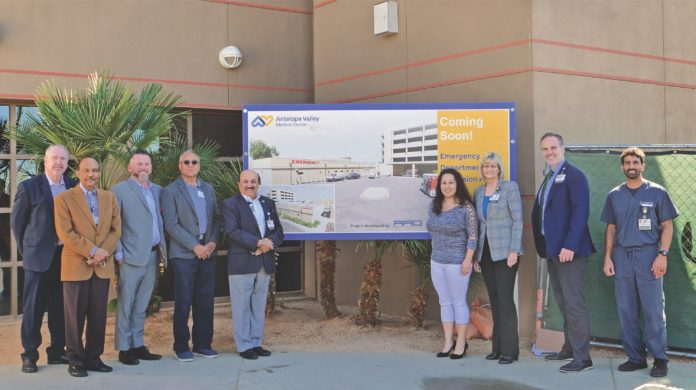Antelope Valley Medical Center has partnered with RAD Technology Medical Systems, a provider of modular health care facilities, to construct a 7,200-square-foot addition to its emergency department.
The building will include 40 treatment bays, a nurses’ station and support areas. The additional emergency room space will allow Antelope Valley Medical Center to better meet patient demand of around 9,000 patients a month. The medical center is a health care facility within the Antelope Valley Healthcare District located in Lancaster.
“This has been a much-anticipated project,” Edward Mirzabegian, the medical center’s chief executive, said in a statement. “AVMC is the second busiest emergency room in the State; without a doubt, this expansion needed to happen to accommodate the growing need in this region. As the only level II trauma center and ED (emergency department) approved for pediatric care, we’re excited for this expansion and what it’ll mean to this community.”
RAD’s modular facility designs are constructed off site at a factory, reducing disruptions to patients and staff at a medical center.
The factory-fabricated solutions are completed up to 50% faster than standard construction and can be installed for temporary, interim or permanent use. Operating leases require no capital, which allows projects to be completed sooner and clients to generate revenue faster.
“Factory construction is underway and the modules are currently scheduled to arrive on site this winter,” Mike Kosinski, RAD’s vice president of construction and field operations, said in a statement. “We are pleased we are able to use our modular technology to benefit Antelope Valley Medical Center and the surrounding community.”
The Florida company has conducted business in the Los Angeles region before; it provided Glendale Adventist Medical Center with a temporary radiotherapy vault in 2017. The vault was used for about five months while Adventist upgraded its cancer center.
The Antelope Valley Medical Center addition will be connected to the existing emergency department and located in a portion of the ambulance drop-off area. It will look and operate as if it has always been a part of the original building.
The expansion to the hospital’s emergency department is scheduled to be fully operational this spring.
“We look forward to the completion of the ED (emergency department) expansion,” Dr. Don Parazo, an Antelope Valley Healthcare District board member, said in a statement. “This expansion will allow for a more spacious workflow and provide additional support to our patients.”
The modular addition will mark another milestone in the medical center’s growth this year, which also includes a multi-year agreement with CarepathRx to increase patient access to a new ambulatory infusion clinic and home-infusion therapies.
Ambulatory sites are alternatives to traditional hospital settings where patients can receive drug infusions. Mirzabegian said in a statement that the partnership would reduce costly hospital stays for patients whether they receive infusions from the clinic or in the comfort of their own homes.
